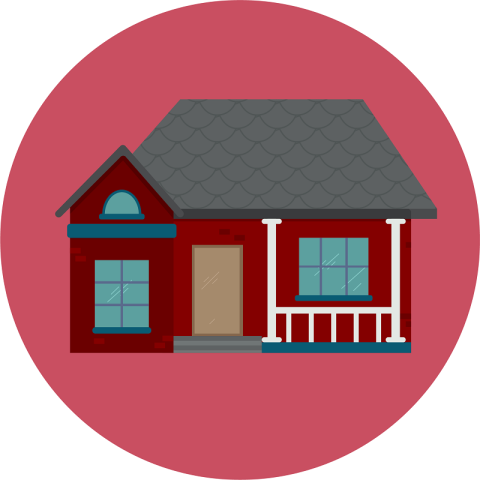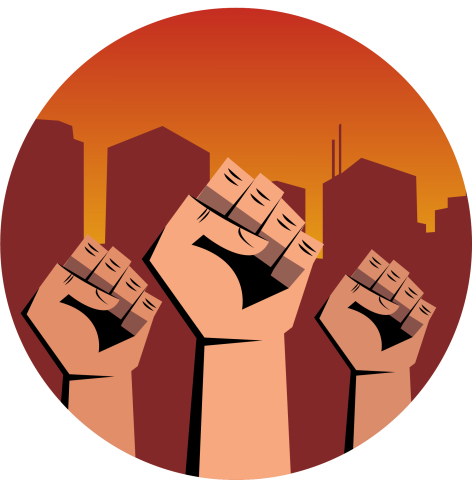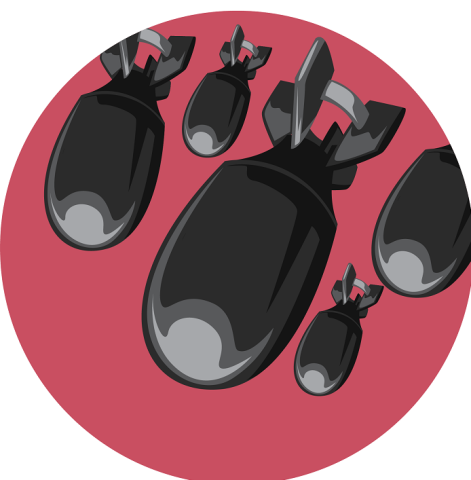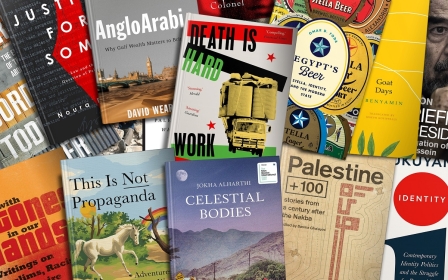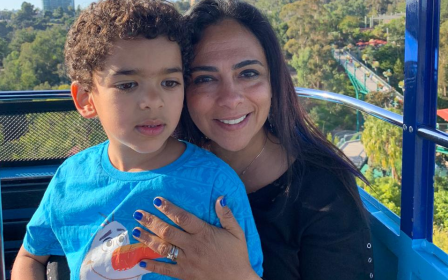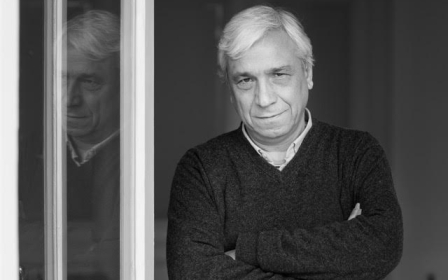Books and bombs: How I healed myself through fiction
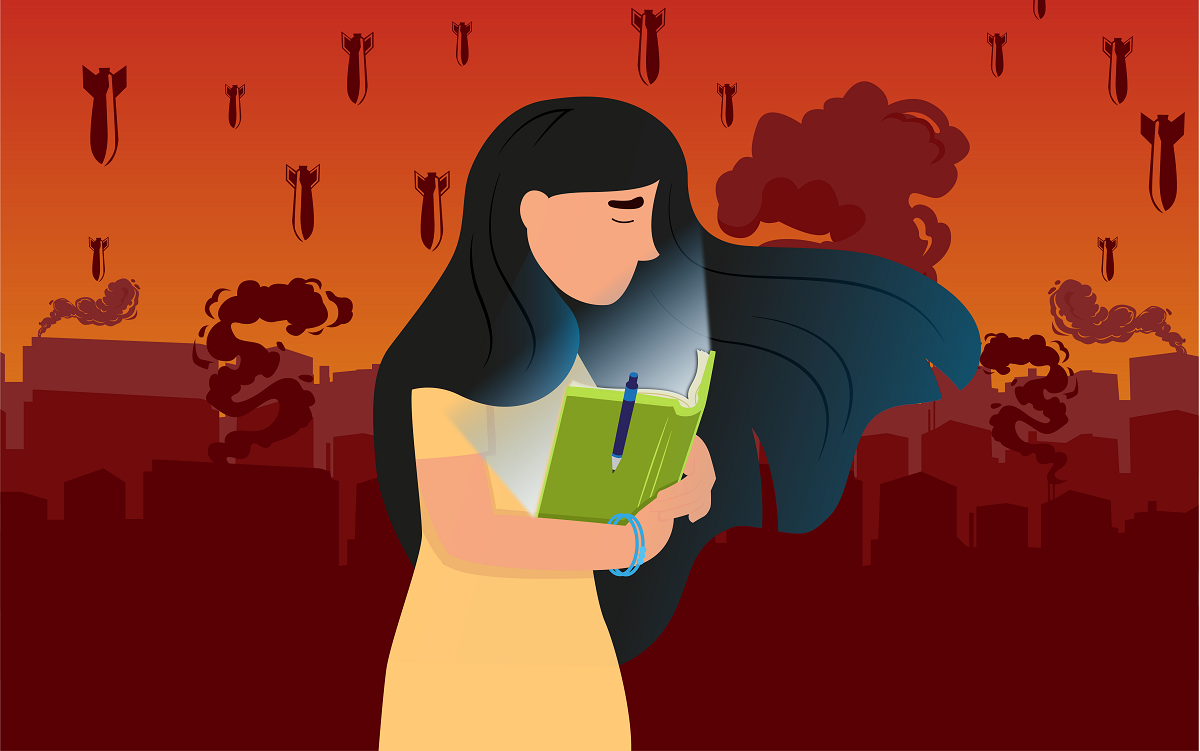
For my ninth birthday, my aunt bought me a colourful scented diary with a lock and two keys. Being from a large family, I never had much in terms of personal space. But the yellow, blue, and pink pages gave me the opportunity to share my most intimate thoughts.
With time, journalling became a habit. I wrote about my first crush. I wrote a letter to God, praying for my pimples to disappear. I wrote about my excitement when I got my period. I wrote about a fight with my cousin. I wrote about the 1991 Gulf War. I wrote about feeling ashamed. I wrote about feeling afraid.
Though I was born in Yemen, my family moved around a number of times when I was young. I had just turned 13 when we moved to the US in 1992.
In high school, I loved writing essays and I even offered to write my cousin’s homework. I dreamed of one day being published like my father, who has published more than 15 books. In my late 20s, I started a blog. I moved back to Yemen, and following the breakout of protests there in 2011, I used it to post testimonies, photographs and commentaries about the unravelling situation, which I witnessed first-hand.
But I never really expressed deep emotions or personal reflection until 2013, aged 33, when a conversation with my grandmother spurred me to finally begin to face my pain (both experienced and inherited), without fear of judgment, through my writing.
New MEE newsletter: Jerusalem Dispatch
Sign up to get the latest insights and analysis on Israel-Palestine, alongside Turkey Unpacked and other MEE newsletters
At first, the pages were filled with rants, self-pity and guilt. But, with time, I let my imagination take over and watched in awe as the pages gradually transformed into fiction.
Writing has not only been cathartic, it also transports me to Yemen every day - or every day that I write. And not to the Yemen we see on TV, but to the Yemen I remember.
One foot in Sanaa
In November 1979, on the night before Eid, "my head fell" on the southern wing of my family’s 200-year old home in Sanaa. Masqat al-ra’as, the place where the head falls, is the literal Arabic translation for birthplace. While I have lived in many different cities, Sanaa remains the place where I feel most at home.
We may have lived on Sorrel Avenue, Maryland, but inside our home we were in Al-Sayyad neighbourhood. We had one foot in Sanaa and another in Maryland, from the food and the Yemeni satellite channel blasting all day, to the furniture, including the Yemeni low-cushion seating in the basement. Like many immigrant families, my parents often spoke about “home” as the one in Yemen, imagining an inevitable return.
Politics remained a pivotal part of our home life. The painting of my paternal grandfather, Jaddu Ali, and his one eye which he lost due to smallpox, hung proudly on our wall, a reminder of his political sacrifice. As a member of the Free Yemeni Movement, he helped produce a Sacred National Charter that envisioned a reformed constitutional imamate. He was imprisoned, then beheaded, following the thwarted revolt of February 1948 and the assassination of Yemen's monarch, Imam Yahya (1904-1948). A photograph of Jaddu Ali’s head still hangs in the Military Museum in Sanaa as an ode to the 1948 revolutionaries.
My teenage father and uncles were subsequently imprisoned for several years, along with leading scholars of the time. We often begged to hear more about their time in prison and craved details of my uncles' escape from detention (though my dad couldn’t). We asked them to teach us how to write secret letters with lemon and toothpicks just like they did.
I took these stories as my roadmap, my book of life. I promised myself that I would honour their memory through writing. As we grew up, I had one focus in mind: my inevitable return to Yemen.
Loss of a dream
Nearly 20 years later, my dream was finally realised when I moved back to Sanaa in 2010, aged 30, just before the protests were beginning to take hold in the capital. Along with other young activists and opposition members, I proudly chanted “The people want the end of the regime”, and jumped on the opportunity to embody my revolutionary family.
My self-assigned task was to blog the revolution in English, and to document the dead – their name, age, photographs, time and cause of death – and send it to human rights organisations. I gave talks and wrote policy briefs and political op-eds focused on the situation.
But after doing that for a couple of years, I fell into depression. During that time, people I loved had passed away, some kidnapped or imprisoned. I felt grief over the loss of a dream, the loss of home. I felt powerless simply documenting the suffering of people but not being able to affect any kind of change. I took a step back from activism. I felt weak: my family had endured so much more and yet here I was unable to continue after just a few years.
I went off the grid for the first time. Retreating from politics meant retreating from my family legacy, my old life, and my friends. If I wasn’t an activist then who was I?
Then one day in 2013, in Sanaa, my maternal grandmother Mama Sayyida shared a difficult memory. She told me how she had attempted to abort her fourth child after finding out she was pregnant while my grandfather was still in prison. She didn’t know how she would handle yet another child, and took pills in the early months to try to terminate her pregnancy. It didn’t work, and she gave birth to a baby girl she named Rajaa.
One of the things that struck me about her stories was that they weren't shared with us. It was astonishing how our childhood stories were only based on the action-filled lives of the men in our family. Few stories were about the women, with the exception of my paternal grandmother Fatimah, who was the daughter of a tribal leader. Mama Sayyida’s sacrifices, however, probably seemed unworthy of documentation.
I asked if I could interview her about her life and write about it. She agreed on one condition: that I turn it into a script for a Ramadan musalsal. The soap operas that air daily during Ramadan are renowned for their dramatic plotlines, which she was hooked on.
I took as the starting point the story of the death of Rajaa, when she was just nine years old. A stray bullet killed her while they were driving from Sanaa to their village of Bani Husheish during the Siege of Sanaa in 1967. Mama Sayyida's grief was compounded by a deep sense of guilt, as she believed that her child’s death was a punishment for her attempted abortion.
As I began writing Mama Sayyida’s story, I changed her name to Taqiyyah, a common Yemeni name meaning "prudence". Soon, I noticed the character begin to morph into someone other than my grandmother. At times, the character resembled my other grandmother Fatima, as in one scene I described her carrying an AK-47 on her horse - something Mama Sayyida never did.
Taqiyyah was also like me, opinionated and guilt-ridden, though sometimes she was someone I barely knew. Maybe my character had dissociative identity disorder. Maybe she was simply the embodiment of all Yemeni women, past and present. She was both strong and vulnerable. She was from an alternate reality, but also a reality very familiar to me.
Stepping away from the struggle
By the time the conflict in Yemen had begun to escalate in January 2015, my husband had moved to Tunisia, and I was travelling back and forth between Sanaa and Tunis. On 19 January, the presidential palace in Sanaa was attacked by Houthi rebels. The next day, Aden airport was shut and we feared that Sanaa airport would be next.
Within three hours of the announcement, I was on the next flight out, without a suitcase, heading for Tunis where my husband was based. I had assumed I would be back soon, but then former president Abd Rabbuh Mansur Hadi resigned. Saudi air strikes began two months later, on 26 March 2015, just a few days after I found out that I was pregnant with my daughter.
That's when guilt reared its head again. Firstly, because I had the privilege of fleeing the country within a matter of hours. Secondly, because I was a pregnant woman, safe and able to visit the doctor for a check-up, while in Yemen, pregnant women were dying because of the lack of equipment at hospitals and electricity and fuel shortages.
I began having nightmares about bombings, hovering aircraft, and I was often running. There was so much running. In one exceptionally disturbing dream, I was chopping a body into pieces, then putting the parts in plastic bags.
I was constantly worried about my family and friends and could barely eat. Despite its proximity, I hardly set foot on Tunis beach. I stopped watching the news or checking social media when my doctor warned me about the dangers of stress on the foetus.
Stepping away fr0m the disturbing images and tweets reduced my anxiety, but added to my guilt. Where before I had been engaged in the struggle, now I felt stuck and helpless.
Once again, I turned to the page. In the two hours that I was writing daily, I could live outside the space of war. I “[transcended] the here and now” as Howard Zinn puts it in his collection of essays, Artists In Times Of War.
I no longer thought about things I could not control, like pregnant women who died at checkpoints, parents who watched helplessly as their kids turned to skeletons, or siblings who had to reassemble the body parts of their loved ones in order to bury them after they had been bombed.
Writing through the pain
The promised series gradually turned into a novel, which I have dedicated to Mama Sayyida. In it, I write about the daily tufrutas - gatherings - which she loved up until her death, where every afternoon Yemeni women take time off to relax. They wear their beaded dresses, perfume their bodies and blowdry their bangs, then they head to the tufruta, which is sometimes a small intimate gathering between friends, but can also be an opportunity to celebrate a recent wedding, graduation or a birth.
There, in the overcrowded rooms filled with perfumed sweat, cigarettes, shisha and incense, the women take their sacred "me time".
I wrote my own childhood into the stories too. I wrote about my favourite treat, Abu mal’aqah - or "father of the spoon" - which came in a small plastic tub split into two, with milk chocolate on the right and white chocolate on the left. Sometimes I used a tiny wooden spoon to scoop the chocolate out, but most of the time my index finger did the trick.
I didn’t just write joyful events, but also chapters I found extremely difficult. I wrote about the dead bodies I had documented, some of them forever engraved in my mind:
The room was 10 by 12 feet with no windows. It didn’t smell like anything at all - neither did the body. Probably because he was killed an hour ago. The only sound a buzzing mosquito with a microphone. The slim body of the 14-year old rested on a twin rolling bed in the middle of the room, draped in a white sheet. “Boo!” I imagined him uncovering the sheet suddenly. It would’ve been an awful prank, but one his father could’ve lived with.
Today, from our new home in Brussels where we recently moved for work, I still watch the conflict raging in my country, and like poet Suheir Hammad said, “my head unwraps around what appears limitless, man's creative violence.” Yet, what is different now is that I focus on the only thing I can control and that they can’t take away from me, keeping Yemen alive through stories and culture.
But I have also come to feel emotions other than sadness. Even if they were at first the emotions of my characters, with time they also became mine. When I write about women’s parties, Ammo Ali’s cafe in the old city of Sanaa that served the best tea, or my childhood memories of Yemen’s famous biscuits, Abu Walad, I remove myself from the moments of horror.
Through fiction, I could position myself against deep-set grief and reconstruct the events that had taken place. When I returned to my childhood diaries many years later I was shocked at some of the painful memories that my 11-year-old self had written about that I had buried as an adult.
Even more surprising was that my younger self had written about it from a distance, as though she was simply a witness in a report, a lesson it took me decades to unlearn.
Writing today allows me to actively pay attention to the trauma I had avoided for a very long time. They say writing is rewriting, and every time I re-read my words, I reflect on them, and create new meaning. Fiction gave me the space I needed to not only grieve but to mourn. As Joan Didion wrote in The Year of Magical Thinking: “Grief was passive. Grief happened. Mourning, the act of dealing with grief, required attention."
Fiction allows me space to consider divergent ideas and think in non-linear ways, because the novel appreciates the complexities of human nature. Through character dialogues, I become my own devil’s advocate and question my own beliefs. At one point, I learned to see those who hurt me in a different way, by making them the protagonist. By doing that, I eventually let go of self-pity and shame.
My novel has been through different versions; what began as a story about my grandmother’s personal journey is now an exploration of the long road to healing. I wish I could ask Mama Sayyida more about her stories today, but she has since passed away. Much was left unsaid, though I have tried to imagine as much as I could in my book.
Atiaf AlWazir's writing can be found on her website, where she also keeps a blog. Her novel is still in progress and she is also working on a children's book on resilience. She will be giving a TEDxBerkeley talk in California, US, on Saturday 8 February 2020.
The views expressed in this article belong to the author and do not necessarily reflect the editorial policy of Middle East Eye.
Middle East Eye delivers independent and unrivalled coverage and analysis of the Middle East, North Africa and beyond. To learn more about republishing this content and the associated fees, please fill out this form. More about MEE can be found here.


